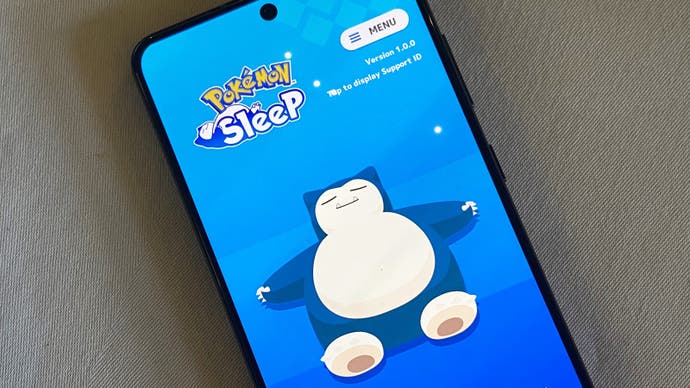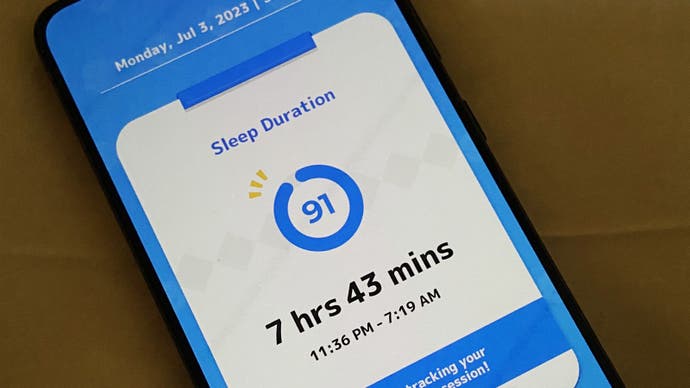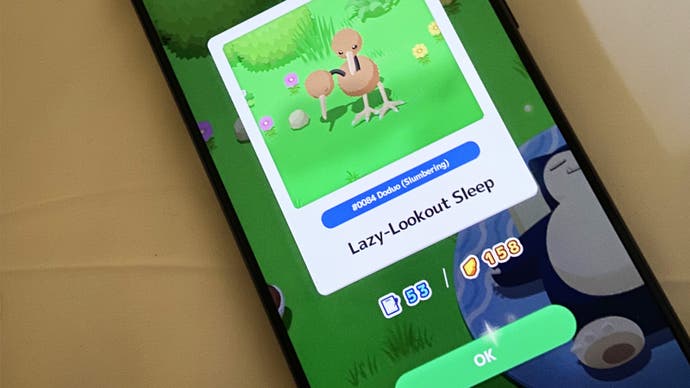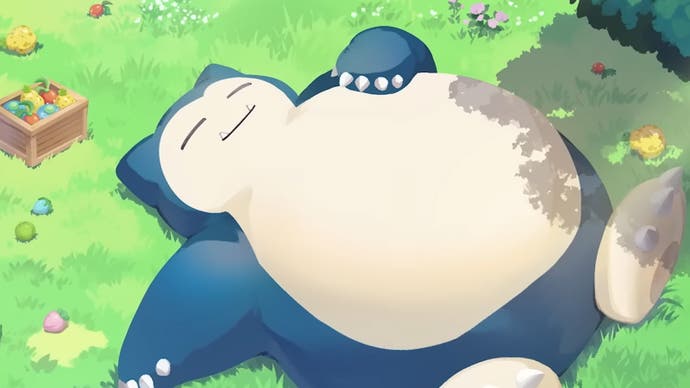A night with Pokémon Sleep, the app that gamifies your slumber and listens to you snore
Nap store.
What's your morning phone routine? After your alarm sounds but before you get out of bed, do you scroll through your mobile? Half asleep, I clear notifications, read BBC News, do the Wordle. This week, that changed - I checked in with Snorlax first instead.
Pokémon Sleep is the franchise's big play to dominate the one part of my life previously free from Pokémon gaming - the six to eight hours a night I'm typically asleep. The app tracks sleep quality and offers rewards each morning - and yes, it also gives you another Pokémon thing to check in on during the day.
If you've tried a sleep-tracking app on your phone before, Pokémon Sleep likely works in a similar method. You lay your device next to you in bed - with the app open and the phone unlocked - and it detects your night-time noise and movement. (Pokémon Sleep asks you not to put your phone directly under your pillow in order to avoid it overheating.)
After a night with the app open, you then check in to see how your sleep varied during the night and to collect your rewards, with a better, longer night's sleep providing more (and bonuses for going to bed at your chosen bedtime). The overall aim of the app is for you to complete its Pokédex by attracting different Pokémon species as you sleep, with these creatures then found clustered around the app's main character, Snorlax, as you wake up each AM.
In Pokémon Sleep, you raise a Snorlax each week who grows each day. The aim is to grow him as big as possible before waving goodbye each Monday morning. Bigger Snorlaxes mean more Sleep Power to attract more and different Pokémon - and then by feeding these creatures, you can add them permanently to your squad.
All of this means you'll need to record your sleep each night and earn as high a sleep rating as possible - with the maximum 100 points given if you manage a full 8.5 hours. (People with families, pets, or late night gaming habits, feel free to chuckle at this possibility as much as I did.) You can record two sleep sessions per 24 hour period, though these need to be at least 90 minutes in length to count - so no power naps.

With an early night (for me, before midnight) and no other games before bed, I managed to score an impressive 91 points for a sleep time of 7 hours and 43 minutes. But this is just one part of growing your Snorlax - and even if you have a pretty unhealthy sleep schedule, you're probably going to be fine. Why? Because as well as sleeping, Snorlax is also pretty good at eating - and you can alternatively grow your Snorlax each day by checking in at various points and giving it food, provided by the other Pokémon you have attracted and befriended.
When I woke, I found I had encouraged a Squirtle, Spheal, Igglybuff, Doduo and Pichu to nap alongside my Snorlax, filling out five spots in the app's current Pokédex of several hundred. Each Pokémon also had their own individual sleep styles, presumably providing an opportunity for further collection of these. I also had enough Pokémon biscuits (ingredients: unknown) to add one creature to my squad - Squirtle - who then foraged berries for my Snorlax to eat while I ate my breakfast.
Looking at my sleep quality graph, I could see the times I stirred in the night - and when I got up at one point to go to the bathroom - alongside a collection of recordings from when the app picked up noise. This was a bit odd, to be honest - even knowing Pokémon Sleep doesn't share these recordings outside the app, it felt a little invasive to hear the times I was breathing heavily while unconscious, or the time someone banged a door outside my bedroom. It's a feature you can switch off, and I probably will. But hey, if you're a talkative sleeper, maybe you'll find yourself saying something interesting.

All of that covers the app's basic gameplay loop, with the ability to continue checking in throughout the day to keep your Snorlax's tummy topped up with treats. But it's clear there's much more to uncover around how you attract specific species, or grow your Snorlax by combining food into recipes, so you fill your Pokédex and grow the most enormous weekly Snorlax possible.
As a free-to-play game, you can of course buy things to speed this up - and there's a store bulging with items to aid you here: Biscuits, Incenses, better camping equipment, virtual pillows... If there's a gameplay element to be optimised, it looks like there's an item you can buy to make it easier. The app has a premium currency, Diamonds, you can buy in amounts ranging from 99p to £80.99. There's also an earnable currency, Points, you can exchange for similar rewards.
The app offers a subscription too, because of course, which unlocks extra features and allows you to buy premium items with your Points. These features include a diary to record notes, unlimited access to your sleep data and statistics (which is otherwise limited to 30 days), extra Points each day, and both monthly and tri-monthly "lavish" rewards (exactly what these are is not stated). Subscription plans are offered at £7.99 for a month, or £39.99 for six months.

Could I see myself continuing with Pokémon Sleep every night? I could, though I'd need to feel like I was making daily progress towards completing my Pokédex in order for the habit to last. There's also the rewards you get for syncing Pokémon Sleep data with Pokémon Go. Doing so requires the £50 Pokémon Go Plus Plus peripheral, which replaces the need to keep your phone unlocked on your pillow. Instead, this device can be switched on instead, and syncs once with the app each morning. (It can also chatter away to you in Pikachu's voice to help you drift off each night.) Connect the Plus Plus to Pokémon Go itself, meanwhile, and you'll earn Stardust and other item rewards for each night's recorded sleep data (plus an exclusive questline for a nightcap-wearing Snorlax).
I spend a lot of time playing Pokémon games already - in particular Pokémon Go, which is typically on my phone screen whenever I am out of the house. Pokémon Sleep is a unique concept, to be sure, and one which doesn't take up time from when I'm playing games at the moment. But I'd need to play for longer to know if playing free is worthwhile, and whether I have the commitment to make it a permanent part of waking up.




